You’d think that situation would turn me away from gratitude, but I had an experience the other day that turned me around. I realized that anyone can adapt to undesired change. You just need to find your new joy. Coming to terms  We’re all creatures of habit, and I certainly have habits when it comes to the holidays. As I just mentioned, many of those habits involve food. My condition won’t last forever. One day my recovery will end. I don’t expect I’ll go back to how I was before my first ER visit, and I’m not sure I’ll want to go back. But I am sure I’ll want to partake of my favorite foods occasionally — and indulge a bit when the annual holidays come around. That’s all cold comfort for me right now. Or at least it was. Sure, the thought of being around people gorging themselves on delicacies I can’t now enjoy doesn’t exactly fill me with delight. I already cancelled my birthday food plan. Now I’ll need to cancel my food plans for Thanksgiving and probably also Christmas and New Years. You’d think I wouldn’t have gratitude from this — and you’d be right before I had this wonderful experience the other day. Seeing new perspectives I was shopping for some new diet items and of course conscious of the items in others’ carts — items I wanted in mine but dared not on penalty of pain. So I tried distracting myself by focusing on accomplishing the task before me. I would get what I needed and go. That’s when the thought came to me. I’m not that bad off. First, I’ve been moving towards my present diet for some time in increments. I just didn’t want to surrender my favorite foods completely. My current condition won’t tolerate the increments; I have to be there now. That sudden shift gives new perspective on how much moving in small increments was really worth, and that’s something to be grateful for. Second, removing those foods from my diet left a lot of space, so I’ve been searching out recipes online that meet my restrictions. One by one, I’m finding them. Not only that, I’m finding new worlds of flavor as I avoid usual fillers like sugar and embrace spices and seasonings. I’m not sure I’d have all these wonderful new taste experiences without my health challenges driving me, and that’s something to be grateful for. Third, many of these recipes are so easy to make and way cheaper than the pre-packaged versions that I’m finding a new perspective on convenience. The short term convenience of time I get a can or a box doesn’t outweigh other conveniences like more flavor in my mouth, more health in my body, and more money in my bank account. All that’s something to be grateful for. Finding new joys When I put it all together, I have an experience I wouldn’t otherwise have. And that gives me a new perspective on not just my health but also living my life and finding more joy in it. Yes, I’ve had some undesired changes in my life, but I still have access to joy. It’s not the same joy I had previously; my circumstances won’t permit that. But new doors open for every old one that closes, and behind those new doors are new experiences, perspectives, and joys that all give reason for gratitude. So even though I won’t be partaking of the usual Thanksgiving Day feast tomorrow, I will be reflecting on how grateful I am for the new joys I’ve found and continue to find in my new life. So when your situation changes in a way you really don’t want, please take a moment to consider what you do have and find your new joy. You’ll gain new perspectives and new experiences you’ll wish you would have found earlier, and you’ll find yourself grateful you did find them. And that will bring you more joy in your journey.
0 Comments
Assessing the moment  Pancreatitis is inflammation of the pancreas, which the pancreas can heal on its own. But to do so, it must be allowed to focus on that task. Calling it away for its usual duty of producing digestive enzymes or insulin will distract it and thereby prolong healing. That restriction has wrecked some havoc on my diet. Initially I was on a liquid diet and then slowly graduated to more solid food. So long as I stay within my restrictions and keep my meals small (this also helps the pancreas to focus on healing), I should be fine. That said, I still feel swings in my abdomen. Some moments feel better than others. I have even worse swings from my pulmonary embolism. The blood thinners I’m on have some funky side effects, one of which is lightheadedness. It comes and goes, some moments being better than others. Today was particularly bad. The lightheadedness was extreme as I’d never before felt in my life, and it stayed with me the whole morning. I spent much of the day today in the emergency room, where the doctor finally concluded I was experiencing a side effect of my meds. Confronting the moment How do I deal with a condition that not only constantly changes but changes so often I don’t really know how I’ll be the next day? The only real option I have is to do the best I can to attend to the demands of the moment. My condition forces it on me. But that’s not very different from what I’ve been sharing here on Joy in the Journey Radio. We find our best joy in life from living in the moment. Letting go of what things will mean tomorrow opens a door that otherwise remains closed. For example, LDS singles leave much joy on the table when dating by worrying about what different social interactions will mean for them tomorrow. “I don’t want to sit next to those people because then they’ll think I’m interested, and I’m not.” We think we know so much, yet in truth, we don’t know that much, and we see even less. There’s countless tales of couples who didn’t think they were right for each other but who are very happy today because they let go of what they thought they needed and embraced the opportunity in the moment. Embracing the moment Of course, letting go of what things will mean tomorrow isn’t license for leaving the covenant path. I’m in no way suggesting we ignore the consequences of sin. What I’m saying is that within the confines of our covenants we too often focus outside of the present moment, and that focus leaves a lot of joy on the table we could have every day by living in the present moment. By embracing the moments that come within the confines of our covenants, we position ourselves for maximum joy. Redefining what we consider opportunity to be reveals more pathways to experience that joy. The road can still be rough, as I can attest. Some of the moments that confront me are less than pleasant. But I know by doing my best with each moment, I know I’m making my journey as good as it can be. Embrace your life one day at a time. When you stop living in some future that never seems to come or the past that you cannot change, you find more possibilities in your life. You’ll gain more perspective that breeds more hope for the future. And that will bring you more joy in your journey.
Regardless of what’s going on there, I know the Lord will be with me to see me through. I know that because He’s always been with me throughout this entire ordeal. He’s never left my side. In fact, he gave me a wonderful experience. The Lord has bolstered my faith through an unexpected promise. A promise made  Going into the hospital, I had no insurance. I’ve been looking at options in recent years, but I always made too much money to qualify for Medicaid, and what remained was simply not affordable. Something had to change, because there’s no way I can pay all the bills I’m racking up. But with all the stress of it on me, I thought to put it off until after I get out of the hospital. Sunday I was reading in the D&C and came upon an interesting verse. The Prophet Joseph had traveled to Salem, Massachusetts, to pursue a claim of funds that could help alleviate the debts of the Church. Then I read this verse: “Concern not yourselves about your debts, for I will give you power to pay them” (D&C 111:5). I’d read that verse many times before, but this time it struck me with great force. I felt as though a way would be prepared for me, that I didn’t need to worry about it and could focus on getting through this experience in the hospital. I set my concerns about payment aside, but I had no idea what lay in store for me. A promise fulfilled The next day, I find text messages which my brother had sent me while I slept. His wife rarely speaks out with any sort of intervention in my life, but she had one that night and urged my brother to share it with me. She spoke from her previous experience working as an office manager for an assisted living home. And the advice was simple. "Let the hospital help you apply for Medicaid, and let them decide whether or not you qualify." I had looked at that earlier in the month and thought I didn’t qualify. But having nothing to lose by following that counsel, I pursued it. I started with the number for the case manager who had visited me earlier. Eventually, I connected with someone who submitted an application for me. And the application came back approved. The real miracle of this event is that coverage begins from the first day of the month from the application date. I applied on the last day of the month, so everything from the moment I first walked into the emergency room would be covered. A faith bolstered  I didn’t expect the Lord’s promise to be fulfilled so quickly. I thought everything would get resolved after I got out of the hospital. But in His love and mercy, He opened a way for His promise to be fulfilled. That may seem like a trite, little story, but the thought that came to me after I understood my expenses would be covered was neither trite nor little. Through the Spirit, the Lord reminded me of the promise He made me regarding my eternal companion and testified that promise was still real. Just as He fulfilled this unexpected promise regarding my medical expenses, He would open the way for His promise of an eternal companion to be fulfilled. D&C 111 isn’t one of those sections that one would expect to provide special, faith-promoting experiences. Yet an unexpected promise I received while reading that section has given me a much needed bolster to my faith, and I remain grateful to God for His love and mercy. So open yourself to unexpected promises. These tender mercies from the Lord can lead to the bolster of faith you may need in your life. As you share that experience with others, you can help them increase their faith. And that will bring you more joy in your journey.
That attitude can greatly bless the lives of us LDS singles as we interact with each other. Too often we see opportunities to interact through the lens of dating, which often pulls us away from blessing others’ lives. Seeing through the lens of friendship, we’ll more often provide needed assistance. It’s time for LDS singles to re-hoist friendship in dating and singles groups. Just listen  In the video, John admits he couldn’t “fix” Troy, nor did he attempt to. In fact, the casual observer might conclude John didn’t do much at all. John certainly wanted to help, but given everything so many others were doing, John didn’t see much for him to do. Then he started doing something more of us need to do more often; he listened. John invited Troy to ride with him in his truck and let Troy say whatever he wanted. John simply listened. There’s probably a lot the video doesn’t show. But the simple act of listening is beyond profound. We all have a basic human need to be heard and to feel understood. By not directing Troy or trying to give him something, John showed complete respect for Troy’s agency. And by simply listening to Troy, John declared he would stand by Troy regardless of the path Troy chose or what pace he pursued. That’s the mark of a true friend. What blessing could we be to other LDS singles if we simply listened more? Instead of interacting only with those whom we want to date, what if we interacted with everyone with an interest in understanding them or simply letting them be heard? By putting aside the personal agenda, we re-hoist friendship to its rightful valued place. See sameness  Many LDS singles see a duality in their local Church community, especially in geographic wards. There’s the singles and the marrieds. It’s an extremely common perspective among singles. But the story in the video takes a different perspective. The two groups there were the grieving (Troy and his family) and the supporters (everyone else trying to help). That’s significant. John viewed Troy as a brother, not someone fundamentally different. If we LDS singles could see one another more as brothers and sisters, we could re-hoist friendship in a new culture of togetherness. Now, I know some of you are saying. “Yeah, but John and Troy are both married, so of course John would see Troy as one of his group.” Perhaps, but John could’ve found a substantial enough difference if he looked for it. The point is he didn’t. He saw Troy as just as much a person as he was, and that view allowed him to feel more compassion and more desire to be the true friend he was. Involve others 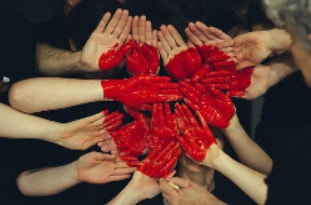 John also involved others in demonstrating support for Troy. The scene where John and the group present the jersey to Troy just jerks my tears. Then there’s what appears to be his ward releasing balloons in celebration of his son’s birthday. As John continued standing by Troy, many other opportunities to show support probably presented themselves. And they all helped Troy along his path. What if we singles involved one another in supporting each other? What if, instead of everyone doing their own thing, everyone reached out to include everyone? What if we each told each other, “Come talk with me,” “Come sit with me”, and “Come do what I’m doing with me”? Real friends bring everyone in. That may be the best support for singles dealing with their pain and grief, many of whom struggle unbeknownst to those around them. Let’s re-hoist friendship in all our interactions with each other. By listening to one another, seeing one another as brothers and sisters, and involving others in building community, we not only embrace but also embody true friendship. By bringing ourselves closer to each other, we bring ourselves closer to God. And that will bring us more joy in our journey.
Elder Christofferson approached belonging from a doctrinal perspective with practical application to belonging. That approach confirmed what we’ve been discussing here for years on Joy in the Journey Radio. But it also enlightened my understanding of what it means to belong. It’s easier to feel belonging when we truly understand the doctrine of belonging. See the commonalities  Elder Christofferson begins by listing the three parts of the doctrine of belonging: “the role of belonging in gathering the Lord's covenant people, the importance of service and sacrifice in belonging, and the centrality of Jesus Christ to belonging.” Let’s talk about how each of these parts relates to LDS singles. As the Lord gathers His covenant people across the world, we’d expect, as Elder Christofferson rightly notes, Church membership to become more diverse. We see that diversity today in every conceivable way, including life situation. This diversity offers great strength and richness but also great challenge as our biological hardwiring influences us to compare ourselves with others in order to assess how “normal” we are. Without context, such comparisons can demoralize and depress us. Elder Christofferson illustrated this effect in the story of Jody King, a married woman confronting infertility. As I listened to the heartrending emotions expressed in Sister King’s experience, I recognized a great parallel. You could change the details of her story from would-be-mother to would-be spouse, and the emotions would stay the same. We need to see less of the details differentiating us and more of our commonality as children of God. Elder Christofferson recognized that need when he taught,
We too should care about what others around us are becoming more than what they are today. Serve one another  In addition, we gain a sense of belonging within the Church as we serve and contribute to the larger Church community. This makes obvious sense and yet the realization of its truth escapes many of us precisely because it is so simple. We feel like we belong to a larger group when we do what those in the group do. Singles don’t do everything marrieds do (or at least they shouldn’t), and that distinction highlights the earlier distinction of identity (“I’m single and you’re married”) that destroys any feeling of belonging. But serving one another is something everyone can do. Being true to as many covenants as one’s made is something everyone can do. When everyone serves everyone else and turns their focus there, we see ourselves more doing what the group does and foster the sense of belonging we crave. Elder Christofferson recognized this truth as he shared,
How often have we singles focused excessively on our own unmet needs? Think back to such a moment in your life and consider whether you felt like you belonged to the larger Church community in that moment. However legitimate your unmet needs, focusing there always leads to feelings of isolation and abandonment, not belonging. Come unto Christ Of course, the highest and most important sense of belonging comes through Christ. We best promote that sense of belonging by nourishing a personal relationship with Him. We must spend time with Him daily. As I think back upon my many years of LDS singles life, I can remember many struggles with finding acceptance within my peer group. What helped me the most in those times was remembering He Who “came unto his own, and his own received him not” (John 1:11). Leveraging my struggle to feel closer to the Lord has helped me feel more belonging to Him, the only sense of belonging that really matters in the end. Elder Christofferson displayed that perspective as he declared,
LDS singles must live the doctrine of belonging in order to thrive and experience maximum joy despite their circumstances. As we identify as members of the covenant, strive to keep those covenants while serving one another, and spend time daily nourishing our relationship with the Lord, we can gain a sense of belonging to Him and His Church. And that will bring us more joy in our journey.
Today will soon be yesterday  Time passes by so quickly. It seems only yesterday I came home from my mission. Yet in reality it’s been not one day but almost 10,000 days — 27 years. That number staggers my imagination. And what changes have occurred in all that time? I’ve grown in ways I never imagined when I looked into the future 27 years ago. Many are quite positive, but many have me living far beneath my dreams. Comparing what I saw for myself then with what I see in myself now reveals vast differences that beg the questions: How did I get here? How did it come to this? Many LDS singles ask themselves similar questions as they take stock of themselves. They live far beneath the dreams they had when they were younger. And with the world becoming ever more chaotic, they wonder how those dreams have any chance of coming true. Much lies outside your own individual power to change, but much more remains within it. As President Nelson reminds us,
That last part — how you spend your time each day — is key. Your best life is the collection of results you desire. Results come only from action. And every action, in order to exist, must occupy space and time. You can’t change the past, and the future’s always a day away. All you have is here and now. And it turns out that’s all you need to begin living your best life. It’s time to start moving Far too many of us hold ourselves back from our best life. We focus on the obstacles instead of the opportunities. We keep looking for and listening to excuses instead of ways to move forward. And without forward motion, we’ll never develop the momentum we need to push through tough times. Some hear these arguments and decide to fool themselves. They leverage lessons from their past to formulate brilliant plans for moving forward. They feel good about themselves after spending inordinate amounts of time planning and preparing. But those good feelings never translate into a new life. Their actions don’t deliver the results of their dreams but rather trick their minds into thinking they’ve done something substantial when in reality they haven’t. President Nelson understood that situation. He taught,
It’s forward momentum that keeps you moving from one success to another. Momentum carries you through life’s rough seasons and makes your dreams come true. And the only way to get momentum is to start moving and then keep moving. Now is the time to start moving. Right now is the time Everything we talk about on Joy in the Journey Radio is meant to help LDS singles live their best life. And all of it will mean absolutely nothing for you unless you wield your power of agency to do what you can with what you have right here right now. All you have is this moment. When you waste it, nothing in your life changes, at least not for the better. So don’t waste it. Begin gathering momentum now. Live within your covenants more completely now. Make more time for the temple now. Take more action towards the results you want in life now. Now is the time because now is the only time you have. Once the present becomes the past, you can’t change it. And when you allow enough present moments to become past regrets you can’t change, your present life falls far below your dreams, leaving you to wonder how you ever got there to begin with. Don’t wait, and don’t doubt yourself. Start taking action towards your best life. Now is the time. When you diligently take advantage of each present moment, they’ll become past successes that taken together will lift you into your best life. And that will bring you more joy in your journey.
My release augments my discouragement with the attitude my stake has for singles. The older couple serving in place of our non-existing reps were organizing an occasional activity before their release. Now there’s nothing. How can I believe my leaders really care about singles when I don’t see any action on the singles front? Now enter my philosophical moment. Reflecting on much of what I share here on Joy in the Journey Radio, I’ve seen the need to take my own medicine. It’s time to own my life, and the first step is acknowledging the truth: I don’t have the results I want because of choices I made. In the end, what you think, what you give, and what you are determine what you get in life. What you think We often highlight on this program the connection between how you think and the results you get. As my recent experience shows, it’s one that is all too easy to forget. Having that idea infused into your nature isn’t the factory default setting. That natural default is to blame the outside — blame people outside of yourself, blame outside circumstances, blame whatever lies outside your control. But by placing responsibility for your life outside yourself, you also place outside yourself the power to change that life. That’s why you’ll never have your best life if you don’t own your life. Until you take responsibility for all the results you have in your life, you’ll never wield the power you need to change your life into your best life. And you have that power within you, for the Lord has declared it (D&C 58:28). Once you own your life, you’ll not only see that power you have within you more clearly but also wield it more effectively. Thinking in those terms always leads to better results in life, no matter your circumstances. What you give Once you start acting on more effective thinking, you’ll see your life begin to change, starting with the way you feel inside. The more you act on more effective thinking, the more effective your actions become at producing the results you want to see in life and the more you find yourself giving. That shouldn’t surprise any long time members of our audience. We’ve often discussed our definition of happiness — giving your all to all the right things for you. The key part of that definition is that first word: giving. So many chase after having whatever they think will make them happy, and all of them sooner or later face the truth of their unhappiness. Happiness is not about having. It’s about giving. And true to the Law of Restoration, life always returns to you what you give to it. What you send out always comes back. So if you want to get more out of your life, give more to it. And the definition of happiness we’ve discussed so often here is the key to what you give — your all to all the right things for you. What you are When you consistently take more effective actions bolstered by more effective thinking long enough, it becomes a habit. That habit played out long enough becomes your character. You become what you consistently do. We all have the potential to be great, but whether or not you reach that potential depends entirely on the choices you make. You have the power within you to make those choices. It’s called agency, and you begin to wield that power by owning your life. The first step is acknowledging you don’t have the results you want because of choices you made in what you’ve thought, given, and been. What you think, what you give, and what you are determine what you get in life. You get to choose all three, and it’s never too late to make a better choice. So don’t wait. Make the better choice now! When you own your life and choose to be more effective in what you think, what you give, and what you are, you’ll be on the road to your best life. And that will bring you more joy in your journey.
As I carefully re-read Elder Ochoa’s address in preparation for the broadcast, I see I had assumptions that led me to a different conclusion than what Elder Ochoa likely intended. When you approach your life with the right assumptions, you can ask “Is the plan working?” and know that it is. Recognize your faulty assumptions  My assumptions began to influence my thinking from the start. When Elder Ochoa mentioned a young returned missionary whose life wasn’t working out the way he expected, I instantly assumed that young man was single. It seemed right to think that. Increasingly LDS singles aren’t marrying at all, and those who do marry do so later. Thus, many LDS singles wonder how the plan of happiness can be working for them when they seem shut out from the blessings of happiness they desire. In that light, Elder Ochoa’s address could’ve been addressing LDS singles when he said,
But Elder Ochoa never identified that discontent young man as single. He may have been single, but he also could have been married. We simply don’t know because Elder Ochoa never said. That’s important, because my assumption the man was single led me to an erroneous conclusion about Elder Ochoa’s address. Distinguish between two plans  Here’s the real problem: There’s two plans we’re talking about here. The first is God’s plan for His children that spans eternity. The second is our plan for our lives here in mortality. With both plans intended to result in our happiness, it’s easy to get them confused. Many LDS singles do in fact confuse them because of faulty assumptions behind their thinking. The largest of these is the idea that righteous blessings result from righteous behavior. The faulty connection assumed here provides particular challenge when the blessing sought is marriage, a blessing not predicated entirely or even largely on righteous behavior. Notwithstanding, those singles who chose to assume that faulty connection in their thinking are more likely to turn tone deaf when they hear messages like this:
Many LDS singles who falsely assume righteousness leads to marriage hear that and respond, “What are you talking about? I’m trying to honor my covenants, so of course I’m following Jesus. But I still don’t have my desired blessings, so how can you say the plan works?” Again, we’re talking about two different plans here. Just because our plan for mortality isn’t working doesn’t mean God’s plan for eternity isn’t also. Focus on the right plan  Elder Ochoa doesn’t address that distinction. His solution for people who feel the plan of happiness isn’t working for them is to act in faith, turn to Jesus, and humble themselves. That’s a great approach when you’re talking about God’s plan that spans eternity. But it offers little to those largely concerned with receiving a blessing in this life. That’s why my faulty assumption at the start of his remarks led me to conclude falsely. Every time Elder Ochoa speaks of “the plan of happiness,” he’s talking about God’s plan that spans eternity. But my faulty assumption at the start got me focused on receiving a blessing in mortality. And with that focus, I couldn’t connect with Elder Ochoa’s real message. Is the plan working? That depends on which plan you’re talking about. If you’re talking about the plan you make for yourself for happiness in mortality, then it may or may not be working, depending on your assumptions. But if you’re talking about the plan God made for His children to be happy in eternity, then yes, that plan is working great so long as we make and keep every sacred covenant we can. When you question your assumptions and get clear about distinguishing between God’s plan for life in eternity and your plan for life in this world, you can better feel the power of perspective helping you to let go of everything holding you back from enjoying each moment irrespective of your circumstances. And that will bring you more joy in your journey.
There really was nothing wrong with me, but there was something wrong with my thinking. Despite seeming natural, these sorts of comparisons with others are never fair. And I wasn’t alone there; many LDS singles unwittingly compare themselves to others. But you should compare you with you and no one else. Understand how you’re built Comparing yourself to others is inherently unfair. We all have different backgrounds, different knowledge, different experiences, different ways of seeing the world. Comparing yourself with others is like comparing apples and oranges. They’re both fruits, but beyond that they have few similarities. Yet recognizing that no good comes from that comparison doesn’t stop anyone from doing it. Why does it seem so natural to compare ourselves with others? Why are we so prone to make these comparisons despite their inherent unfairness? The answer is biology. We’re all biologically hardwired with a basic desire to be loved and accepted. Since like begets like, that desire translates into a desire to be normal, to fit in, to belong. And so part of our biological hardwiring assesses what’s normal by comparing ourselves with those around us. Think of that system as a sort of thermostat. We set our “temperature” to match the “temperature” of those around us so we’ll be like them and therefore fit in. This is why fat people who hang out with fat people find it hard to lose weight and fat people who hang out with skinny people find it easier to lose weight. In both cases, biology prompts the individual to be more like those whom that individual spends substantial time. Leverage how you’re built The same biological hardwiring works in any situation, including the one in which LDS singles feel like Moroni as they watch their friends leave singles life one by one. They feel out of place because they’re not like those around them. Time’s progressing, but they don’t seem to be. How do you deal with such situations? If your biological hardwiring has you wanting to be like those around you, and you find yourself stuck and unable to be like those around you, are you doomed to a miserable existence? My response? Only if you want to be. You can’t change your biological hardwiring, but you can redirect its influence. First, recognize both your propensity to compare and the inherent unfairness in comparing yourself with others. Then accept comparisons only between you and you. Every time you find yourself comparing you with anyone else, stop, remind yourself how unfair that comparison is, and then compare you with you. Essentially, you compare the person you are today with the person you were previously. It may be the person you were last year, last month, last week, yesterday, or even earlier today. But if you can see a reasonable improvement between the previous and present you, you’re making progress. And that’s what really matters. Grow into something more Of course, simply making progress doesn’t necessarily satisfy the basic need to belong, especially if everyone one around you isn’t comparing them with them. But that just highlights the need to choose with caution those with whom you choose to spend your time. Maximize your time around others who’ll help you compare you with you, and minimize your time around others who won’t. In the end, it won’t matter whether you did this or that within whatever time frame as much as whether the you at the end is better than any previous you, because that will mean you made progress along the eternal path. And making progress along that path will mean your time spent in mortality was worthwhile. Stop comparing yourself with others. They don’t have the same combination of background, knowledge, experience, and perspective you have. For all we share in common, our individual experience in mortality really is individual. So compare you with you and no one else. You’ll turn your focus more on making the progress you need to make, and that focus will then determine a reality of progress. And that will bring you more joy in your journey.
What impressed me the most in that meeting was a Japanese sister. As she rambled on in her broken English from one topic to the next, I struggled to make sense of what she was trying to say. But then she spoke two words that captured my attention: Expect miracles. Nourish your thinking I have no idea why she said those two words. Perhaps she was referencing President Nelson’s address from the last Conference on spiritual momentum. Perhaps she was talking about something else related to miracles. Or perhaps she was talking about something completely unrelated and the Spirit prompted her to say those words because I needed to hear them. I say I needed to hear them because they captured my attention. And as I began pondering those words and remembering what I said about them in a recent episode of this program, I immediately felt prompted to make them the focus for this episode of Joy in the Journey Radio. So perhaps there is someone out there who needs this message. Regardless of the need, I do believe this message is important for all LDS singles to review on a regular basis. We need to nourish our thinking with better assumptions, better perspectives, better attitudes, and better self-talk. The idea of expecting miracles encompasses all four of those elements. Reformat and reboot For example, too many LDS singles assume the future will be just like the past. They place so much emphasis on the choices others make, they do not perceive the power inherent in their own choices. A discouraging outlook encourages a despondent attitude. And all of these elements then find reinforcement in self-talk: “What’s the point of trying?” “Why would anyone choose me?” “I’m not good enough.” “I’ll never be loved.” All these messages played on autopilot via habits of thinking reinforce the faulty assumptions, the diminished perspectives, and the failing attitudes that will never lead to success. Expecting miracles reverses all that. Expecting miracles in your life assumes miracles can and will come to you. Expecting miracles exchanges the perspectives focused on the past for ones focused not just on the future but on a future that’s very different from the past. Expecting miracles encourages an optimistic positive attitude. And expecting miracles encourages uplifting self talk: “I’ll keep trying because I will succeed.” “My miracle will choose me.” “I’m more than good enough for my miracle.” “My miracle will happen because I’m already loved.” There’s a night-and-day difference between expecting miracles and the less effective ways of thinking many LDS singles choose to tolerate. Many so choose because they simply aren’t aware of the difference. But having that awareness, why would you choose not to expect a miracle? Why would you cheat yourself of the glorious best life you could have? Position yourself better Of course, miracles are more likely to come and are therefore easier to expect when you get your game on. Put yourself in a good financial position. Serve faithfully in your Church calling. Take care of your responsibilities, including those involving self-care. These changes likely won’t come overnight, but every effort to move in that direction moves you closer into a space where miracles can more easily come. My friend provides a good example. His real interest in attending that Sunday School class was a special “person of interest” (as he calls her). During the drive back, he told me they’d met only one month ago. I was surprised to hear that. Given the way they hugged each other in the parking lot before leaving, I thought they’d known each other longer. But apparently they just hit it off really well. I’d call that a miracle. So expect miracles in your life. Believing in and opening yourself up to possibility can improve your probability of success. By working as you can on improving yourself and your situation, you can move yourself into the space where your miracle can more easily come. That miracle can be the door that swings your best life wide open to you. And that will bring your more joy in your journey.
|
Author
Howdy! I'm Lance, host of Joy in the Journey Radio. I've been blogging about LDS singles life since 2012, and since 2018 I've been producing a weekly Internet radio show and podcast to help LDS singles have more joy in their journey and bring all Latter-day Saints together. Let's engage a conversation that will increase the faith of LDS singles and bring singles and marrieds together in a true unity of the faith.
Comment
Joy in the Journey Radio encourages the free discussion of ideas but reserves the right to remove and/or block comments which do not conform to LDS standards.
Donate
Joy in the Journey Radio offers many free resources to help LDS singles everywhere, but it certainly isn't free! Help Joy in the Journey Radio in its mission to improve the lives of LDS singles by donating today.
Posts by Month
December 2022
Categories
All
|



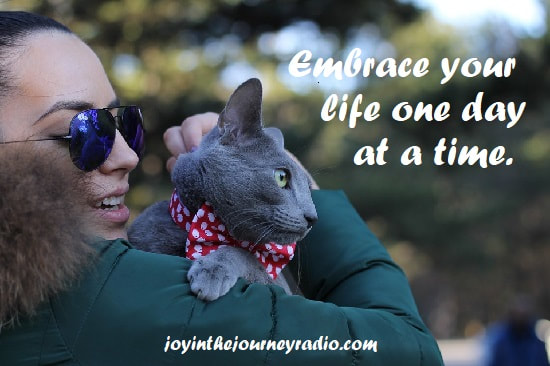

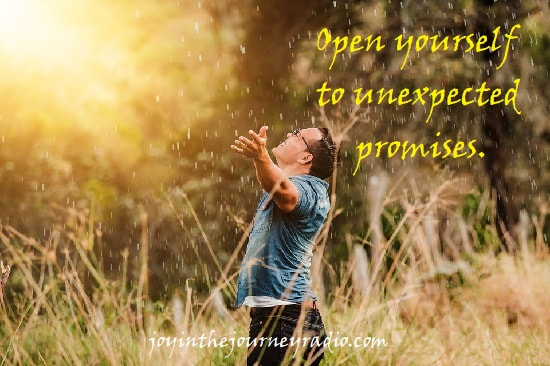
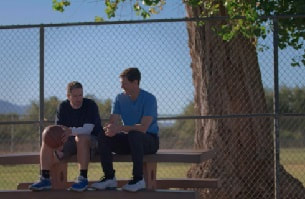
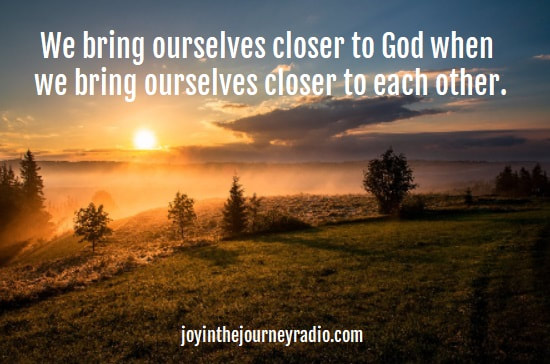
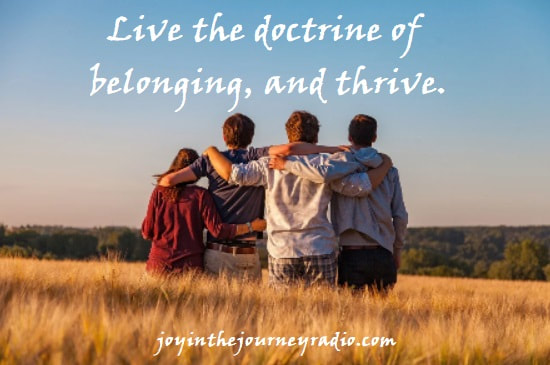
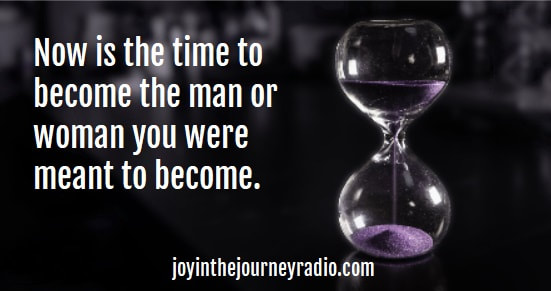


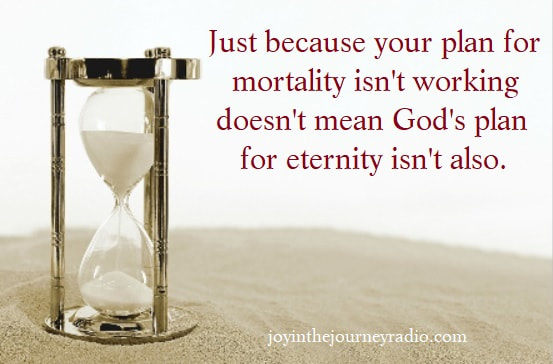

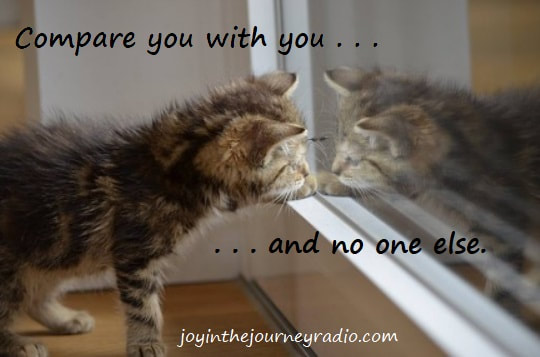


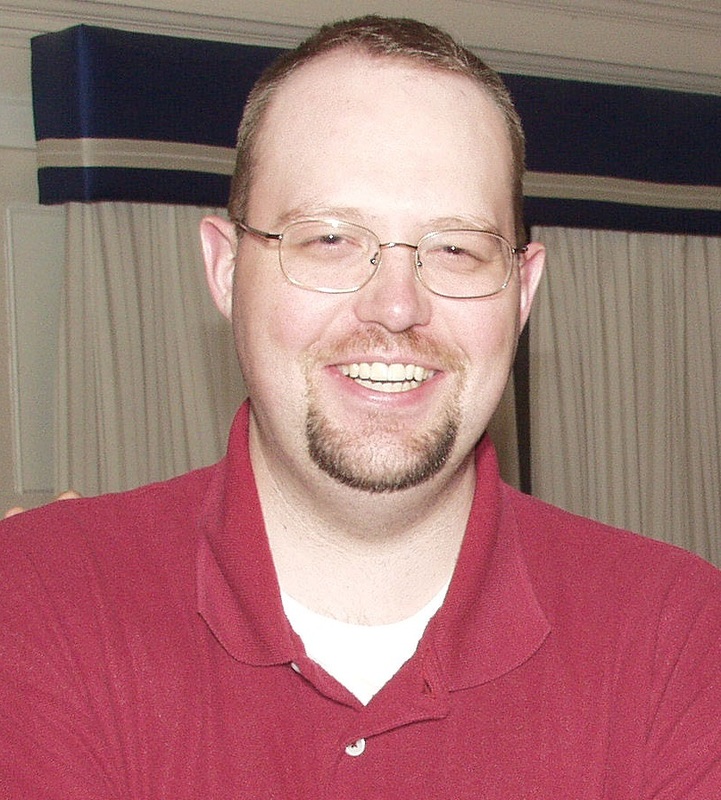
 RSS Feed
RSS Feed